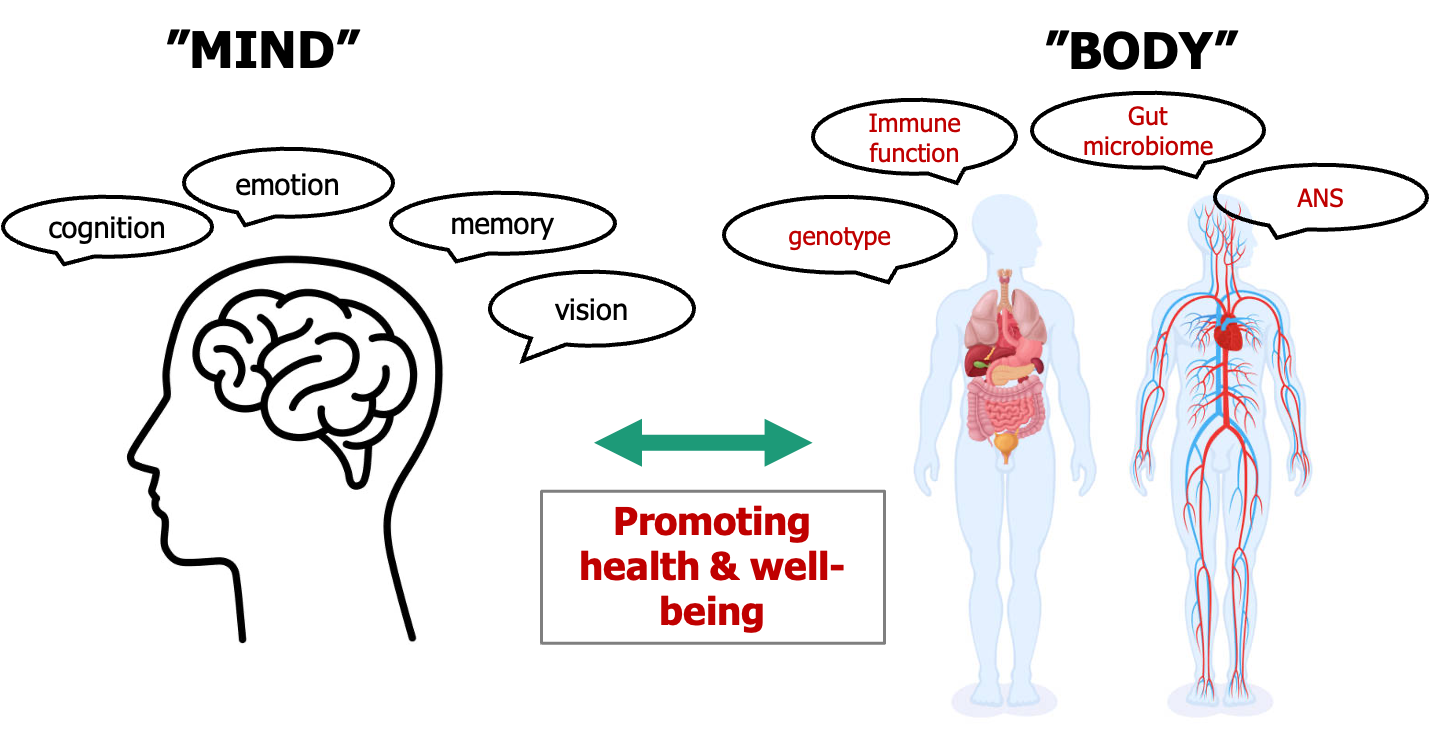
1. Social genomics approach - how the mind influences on gene expression
My research adopts a social genomics approach to examine how psycho-social factors influence health outcomes through “social signal transduction.” This strategy focuses on a specific set of immune-related genes that exhibit an up-regulation in pro-inflammatory responses and a down-regulation in antiviral responses, a pattern known as the conserved transcriptional response to adversity (CTRA) gene expression. The role of CTRA genes, initially identified by Dr. Steve Cole at UCLA for their reaction to loneliness (Cole et al., Genome Biology, 8(9), 2007), has since been associated with a range of adverse psycho-social conditions including stress, loneliness, and socio-economic status, as well as protective factors like prosocial behavior, meditation, optimism, and well-being. In collaboration with Dr. Cole, I have been exploring how psycho-social conditions impact health outcomes by analyzing CTRA gene profiles in Korean adults. Our findings have revealed that CTRA expression is linked with psychological well-being (Lee et al., 2020, Psychoneuroendocrinology), loneliness, in contexts of higher collectivism (Lee et al., 2020, Health Psychology), and social network position (Lee et al., 2023, Psychoneuroendocrinology). Currently, I am engaged in preparing a manuscript that investigates the relationships between CTRA expression and personality traits, with the moderating influence of meaning in life.
Related article: https://www.donga.com/news/Health/article/all/20240105/122921353/1
2. Gut microbiome approach - how the mind influences on gut microbal environment
The gut is increasingly recognized as the “second brain,” a concept underscored by recent findings that reveal the gut microbiome—a collective term for the bacteria, viruses, and fungi residing in the gut—extends its influence beyond digestion to brain functions, including emotion. Communication between the gut and brain is facilitated through the vagus nerve and hormonal pathways, illustrating a complex bidirectional link. Altered compositions of the gut microbiome have been associated with various psychological conditions such as stress, depression, and loneliness, highlighting its significant impact on mental health. My research explores the role of the gut microbiome in the emotional well-being of Korean adults, examining the relationship between gut microbiome diversity and emotional well-being from both cross-sectional (Lee et al., Scientific Reports, 2020) and longitudinal perspectives (Lee et al., Health Psychology, 2024). This exploration aims to shed light on how variations in the gut microbiome can influence emotional states over time, contributing to a deeper understanding of the gut-brain axis and its implications for mental and emotional health.
